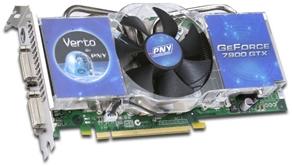
Do you remember the old computing days when there were no sounds except for maybe a beep occasionally and printers making more noise than a cat on a scratching post or how about monitors that offered nothing more than a green or orange glow?
Well, I do! Thank goodness those days are nothing more than history and now we can enjoy the glow of our high resolution monitors that offers us life-like images on a daily basis. We no longer have to squint at some fuzzy displays but can enjoy almost picture perfect animation on the majority of websites.
Now, these images are nothing more than a mass of barely visible dots, known as pixels, and monitors today can display more than a million pixels but it's up to the computer to interpret how to allocate these pixels in order to create an actual image.
“ bigger is not always better. If you have a somewhat out of date system, it may be a useless attempt to only upgrade your graphics card ”
This interpretation process happens on the graphics card and these cards can be upgraded. In fact, many users are tempted to look for the latest and greatest (or should I say expensive) card out there, but there is a better way for choosing just the right graphics card for the job? Here are a few helpful solutions that will help you to determine which the best graphics card for your computer is.
First, before you go out and buy the latest graphic card because you think you need it consider what you will be doing with your computer. If you don't expect to do much more than some internet surfing, some word processing, maybe using your email or doing some chat room or forum activities. Then you most likely won't need any additional graphics support than what will most likely be found on the motherboard with integrated graphic capabilities.
But, if you do plan to work with graphic arts or plan to play a lot of games on your computer you will definitely need to get a graphics card that has a lot of memory as well as a high-speed processor.
A tool you may wish to use is the frame rate measurement which is often a major advertising component for the different graphic cards that are available. Basically this rate refers to the measurement of frames per second or FPS which is nothing more than the rate of complete images a graphic card will display in one second. Now, High end cards will display more than 60 FPS (which by the way is more than twice the amount the human eye can process per second) and therefore provides the illusion of animation and animated scrolling.
If you are going to be doing a lot of graphic work then you will not be contented with the FPS rating. As anyone that does any 3-D imaging on the computer will tell you, FPS will actually do very little to measure the worth of a graphics card for them. In actuality 3-D images are nothing more than triangles, and graphic cards catering to the graphic artist demographic offer a rating that calculates how quickly the card can calculate the triangles and build the frame image.
One thing that really is a concern of everyone is speed. All graphic cards speed is directly influenced by their hardware. If the clock speed and bit rate are low on your computer, then the card will operate much slower than if it were high. In addition the pre-existing hardware also plays a critical role. A high- end graphics card cannot make up for an otherwise outmoded computer system, and a low end computer processor or motherboard will counteract the speed of even the fastest graphics card.
It is apparent that upgrading a graphics card is not so simple a task, and remember bigger is not always better. If you have a somewhat out of date system, it may be a useless attempt to only upgrade your graphics card, since your system most likely will work against any speed increase your card may be able to offer you.
In the same way if your needs are very simple (in computing terms) then it might not be worthwhile to spend a lot of money on a graphics card that you will not use to its fullest potential. Hence it is always wise to know what you will require prior to buying, and to be fully aware of your systems hardware and software configurations prior to adding a new component to the mix.
Garry Allen is a successful Webmaster and publisher of [the website www.best-rated-laptops-and-computers.info cannot be found] Providing you with more information on computer technology and answering the question what's the best rated laptop that you can research in your bathrobe on his website.
More Maintain and Upgrade Your PC Articles:
• Be the Master of Your Printer
• An Uninterruptible Power Supply Can Save Your PC
• Disable Windows Automatic Update
• Digital Photography Printing - Simplifying the Pixels and DPI's
• How to Maintain Accurate Time on Your PC
• How To Properly Install A New Motherboard
• How to Protect Your Electronics from Electrical Surge Events
• Avoid Cancer by Using USB Wired Keyboard and Mouse
• Printers - A Practical Buyers Guide
• Using Your PC as a Home Theater

